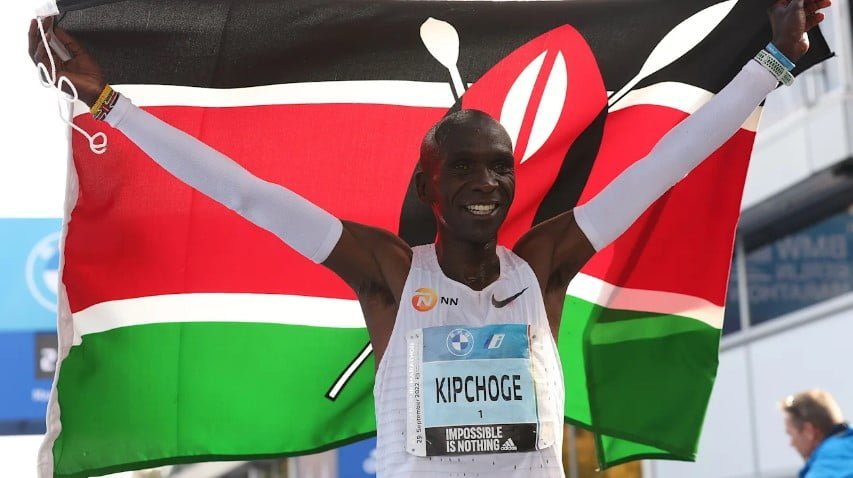Eliud Kipchoge, one of the most accomplished distance runners in history, has the opportunity to further solidify his status when he makes his long-awaited debut at the Boston Marathon. With two Olympic gold medals and the world record for the marathon to his name, Kipchoge has previously triumphed in Berlin, London, Tokyo, and Chicago, four out of the six major world marathons.
As the favored contender in the elite men’s marathon at Boston, this year’s event holds special significance as it marks the 127th running of the historic race and the 10th anniversary of the tragic bombings near the finish line that claimed three lives and injured over 260 individuals.
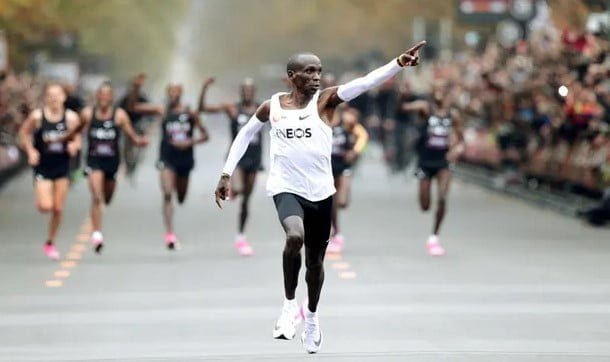
With an exceptionally competitive field expected, the emotional weight of the occasion adds further anticipation to the elite races. Ethiopian athlete Lelisa Desisa, who demonstrated remarkable sportsmanship by donating his medal to the city after winning the men’s race during the year of the bombings, will be returning to compete in Boston. Additionally, two other former champions, Kenyan runners Evans Chebet and Benson Kipruto, will be vying to challenge their compatriot Kipchoge for the coveted title.
However, given Kipchoge’s exceptional track record, having been beaten only twice in his illustrious marathon career spanning 26.2 miles, it is unlikely that he will be easily defeated in Boston this year.
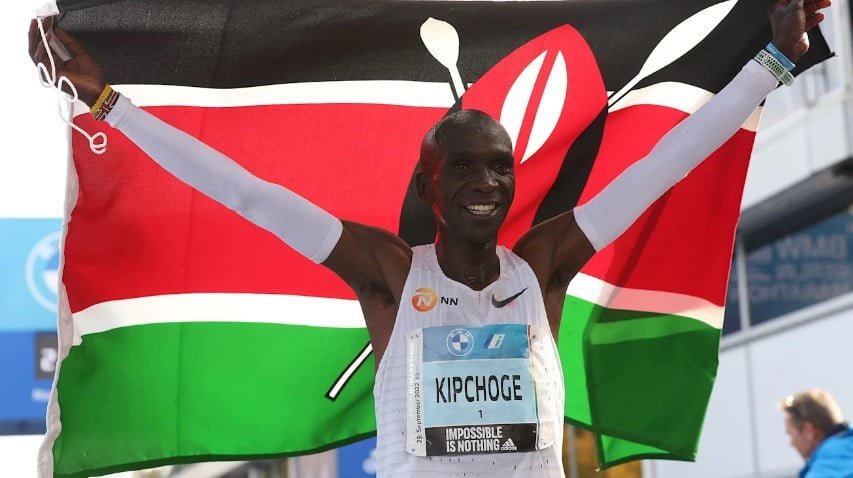
The Boston Marathon, with its point-to-point course that starts in Hopkinton and finishes in Copley Square, is not eligible for world records due to its hilly terrain and windy conditions, which often result in slower times compared to other major marathons. Therefore, Kipchoge’s current world record of 2:01:09, achieved at the 2018 Berlin Marathon, is unlikely to be broken in Boston. Though, Kipchoge may have his sights set on Geoffrey Mutai’s course record of 2:03:02, set in 2011.
To prepare for the challenging Boston course, Kipchoge has been training on a hilly course near his training base in the Kenyan village of Kaptagat, specifically designed to replicate the undulations of the Boston Marathon route.
“This is the right time to train on the course which we have nicknamed ‘Boston’ here in Kenya,” he told Daily Nation. “It’s an uphill and tough course over 40 kilometers.” Kipchoge’s incredible achievements also include being the first person to ever break the two-hour barrier in an event. In 2019, he completed a marathon in a staggering time of 1:59:40 in Vienna, Austria, as part of a specially designed challenge to push the limits of human performance over the marathon distance.
In addition to the men’s race, the women’s elite race at the Boston Marathon will feature three former winners. This includes Des Linden, a beloved figure in Boston and previous champion, as well as the experienced Kenyan runner Edna Kiplagat, and Ethiopia’s 2016 champion Atsede Bayisa.
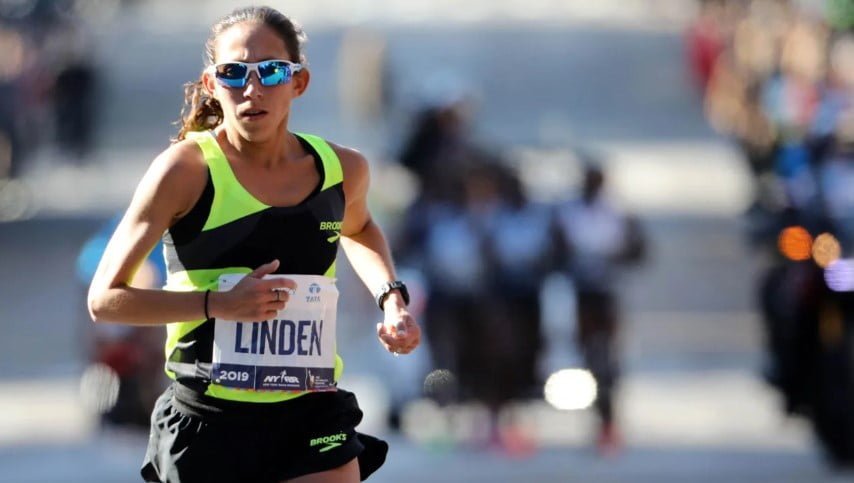
The women’s elite race at the Boston Marathon will also showcase a formidable field of athletes, including last year’s world championship medalists Gotytom Gebreslase from Ethiopia and Lonah Salpeter from Israel. Notably, Kenya’s two-time Olympic medalist Hellen Obiri will be participating in only her second marathon, having finished sixth in New York in November. Among the American women in the elite field, Sara Hall, who will be competing in Boston for the second time, holds the fastest time of 2:20:32.
The Boston Marathon is set to host nearly 30,000 athletes from over 100 countries. The course is known for its net downhill profile, but it also presents challenges with four significant climbs in the second half, including the infamous Heartbreak Hill at the 20-mile mark.
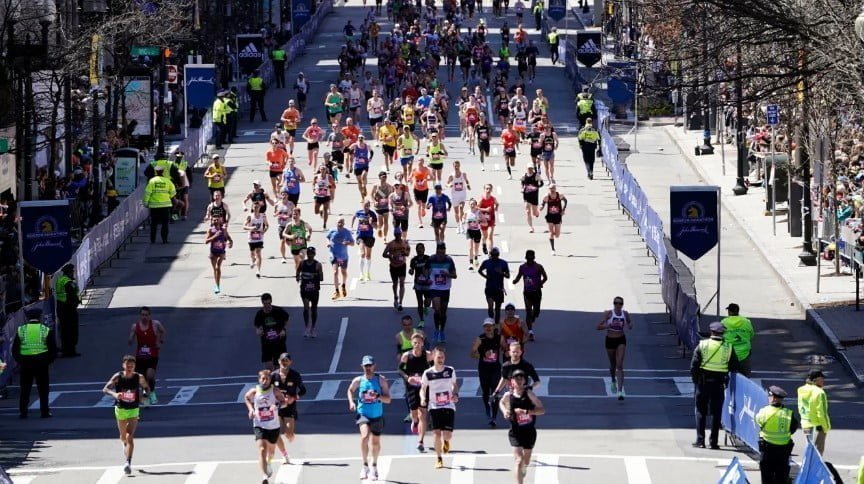
This makes the Boston Marathon a more technical course compared to other marathons, although runners can take advantage of the approximately 200 feet of net descent in the final five miles. Meanwhile, the weather often plays a crucial role in the race, and this year’s event could see runners facing additional challenges with rain and wind forecasted throughout the day. But then, the races at the Boston Marathon are scheduled to commence on Monday, with the men’s wheelchair race kicking off at 9:02 a.m. Eastern Time (ET).
It will be followed by the men’s elite race at 9:37 a.m. ET, then the women’s elite race starting 10 minutes later at 9:47 a.m. ET. The first wave of the mass start will take place at 10 a.m. ET. For viewers in the United States, the race will be broadcast on WCVB and ESPN. International viewers can refer to the Boston Athletic Association website for a comprehensive list of broadcasters covering the event in their respective countries.

